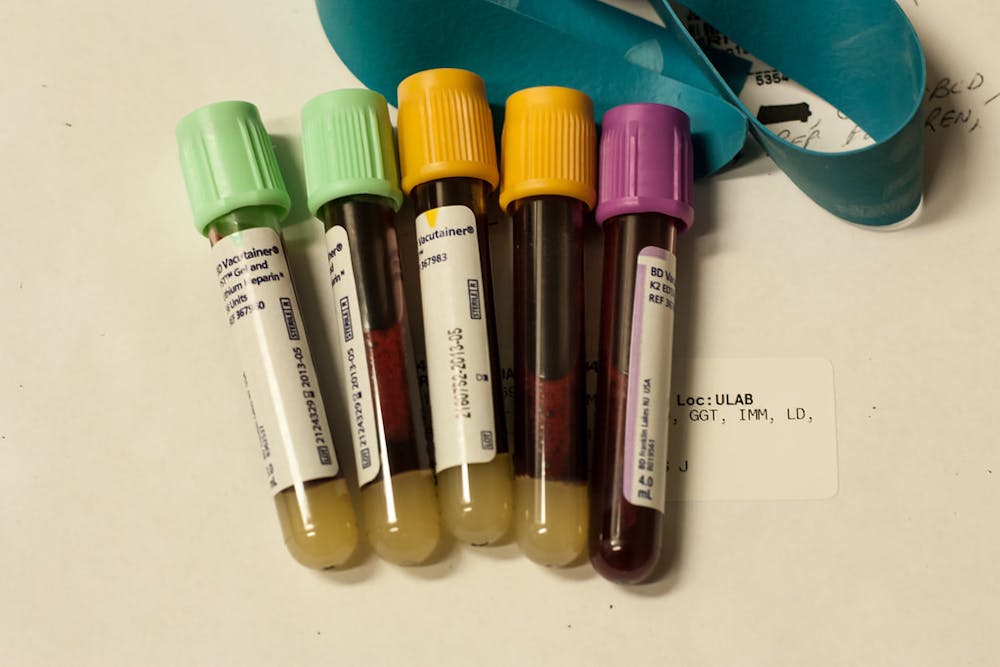Dr. Peter Abadir and Dr. Lolita Nidadavolu from the School of Medicine, along with other researchers, recently identified circulating cell-free genomic DNA (ccf-gDNA) as one of the factors that can predict the effects of aging in elderly populations.
Abadir is an associate professor at the School of Medicine and a clinician-scientist at the Geriatric Medicine and Gerontology department, and Nidadavolu is an assistant professor and clinician-scientist at the School of Medicine. Both Abadir and Nidadavolu investigate how molecular changes in the blood can predict phenotypic outcomes, such as physical or cognitive decline, and propose possible clinical interventions.
Abadir explained his research objectives in an interview with The News-Letter.
“One thing you would want with a human is a crystal ball that tells them what will happen as they age,” he said.
Ccf-gDNA is free-range DNA fragments that activate the immune system and provide insight into how many cells in the body are dying. The reading can be obtained from blood samples, a form of liquid biopsy that one would do at a normal physical checkup. Historically, liquid biopsy was considered a test for detecting diseases in newborns and cancer patients. Recently, ccf-gDNA was found as a biomarker to detect trisomy 21 in fetuses through maternal blood samples.
Abadir and Nidadavolu’s study expanded on the use of ccf-gDNA as a biomarker, specifically for frailty and cognitive decline. Compared with other methods, such as muscle biopsy and cerebral spinal fluid (CSF), blood samples are an easier and less invasive means of diagnosis, making it more suitable for elderly populations.
The authors collaborated with Rush University’s Memory and Aging Project (MAP) and Religious Orders Study (ROS), both of which provided participants’ blood samples and data on physical or cognitive decline longitudinally. The Rush MAP aims to identify the changes in individuals that developed dementia and the assays that could be used to detect those changes.
Abadir and Nidadavolu joined the project with a focus on frailty.
Nidadavolu noted in an interview with The News-Letter that Rush MAP’s longitudinal study had an optimal sample of participants that the authors could use to examine their research interest: the relationship between ccf-gDNA in blood and frailty and dementia.
“Rush MAP had a well-established system that efficiently shared data with their collaborators around the world,” she said.
Abadir emphasized the importance of collaboration between experts from different fields in advancing science.
“Scientific progress nowadays can no longer happen in a single isolated lab,” he said. “It is the collaborative work that will promote progress and answer questions.”
Nidadavolu, a Hopkins graduate, discovered her academic interests in one of her advanced Chemistry classes about nucleic acids. Now, Nidadavolu works with molecular biology-based assays to study frailty and dementia with a focus on inflammation. She collaborated with the University’s Genomics Core to develop a new technology, droplet PCR, to measure singular copies of ccf-gDNA fragments in blood.
Abadir commented on the clinician-scientist's career.
“Clinician scientists can really get to understand patients’ needs through direct clinical interaction, from which they get their research motivation,” he said.
The authors consider that, with future research, ccf-gDNA will be applied in clinical settings in the future. Given that there is no cure for dementia yet, they want ccf-gDNA to be used to identify individuals in need of drugs that can help with cognitive decline.
Looking ahead, the authors are now working with the Bloomberg School of Public Health to identify the origin of ccf-gDNA through means such as DNA methylation. They want to look for associations between the origin of ccf-gDNA in blood and phenotypic indicators of aging.
Abadir expressed his belief that geriatric care is an essential aspect of healthcare and research.
“There is nothing more noble than serving older adults, than finding new solutions for older adults,” he said.





